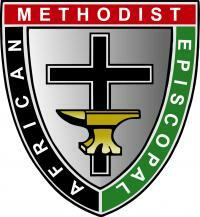How the AME Church began/What We Believe
The African Methodist Episcopal (A.M.E.) Church is a Christian denomination that proudly asserts that it is unashamedly Christian and unapologetically Black. It was founded in 1787 when a group of Black worshipers, led by Richard Allen and Absalom Jones, exited St. N. F. FGeorge’s Methodist Episcopal Church in Philadelphia, Pennsylvania as an act of protest against segregation in the house of God. For a time, Allen and Jones co-led the Free African Society which ministered to the spiritual and social needs of Black Philadelphians. Eventually, Jones was ordained an Episcopal priest and organized St. Thomas’ African Episcopal Church. However, Allen remained committed to Wesleyanism and organized Mother Bethel A.M.E. Church. Its formal organization made it the first independent Black institution in the United States. In 1816, Allen invited delegates from fifteen other Black Methodist churches to Mother Bethel. As a result of this meeting, the churches organized into a denomination known as the African Methodist Episcopal Church, and Allen was elected and consecrated its first bishop. Two-hundred years later, the A.M.E. Church has congregations on five continents and counts 2.5 million congregants. Its theology remains Wesleyan in nature but it also embraces Black Liberation Theology. The A.M.E Church joins with Dr. James Cone (an ordained A.M.E. minister) in declaring that God is on the side of the oppressed. It strives to serve God by preaching Christ crucified and ministering to spiritual and social needs. Its mission statement reads: “The Mission of the AME Church is to minister to the social, spiritual, and physical development of all people.”
The African Methodist Episcopal (AME) Church is a predominantly African American Christian denomination that emerged in the early 19th century in the United States. Here are some of the core beliefs of the AME Church:
1. The Bible: The AME Church believes in the divine inspiration and authority of the Bible as the Word of God. The Scriptures are seen as the primary source of guidance for faith and practice.
2. The Trinity: The AME Church affirms the doctrine of the Trinity, which recognizes God as one being who exists in three persons: Father, Son (Jesus Christ), and Holy Spirit.
3. Salvation: The AME Church teaches that salvation is a gift of God's grace through faith in Jesus Christ. It emphasizes the importance of personal conversion and a life transformed by the Holy Spirit.
4. Jesus Christ: The AME Church sees Jesus Christ as the Son of God, the Savior of humanity, and the embodiment of divine love and redemption. It teaches that through Christ's death and resurrection, salvation and eternal life are made available to all who believe.
5. Social Justice: The AME Church has a strong commitment to social justice and seeks to address issues of inequality, racism, poverty, and injustice in society. It believes that the Gospel of Jesus Christ calls for the transformation of individuals and communities, including a pursuit of social equality and empowerment.
6. Sacraments: The AME Church practices two sacraments: baptism and Holy Communion (also known as the Lord's Supper). Baptism is seen as a symbolic act of initiation into the Christian faith, while Holy Communion commemorates the Last Supper of Jesus and is believed to spiritually nourish believers.
7. Worship: The AME Church embraces both traditional and contemporary forms of worship. Services often include prayer, hymns, preaching, Scripture readings, and musical expressions that reflect the cultural heritage of its members.
It's important to note that while these beliefs generally characterize the AME Church, there can be variations in specific practices and interpretations among individual congregations.
